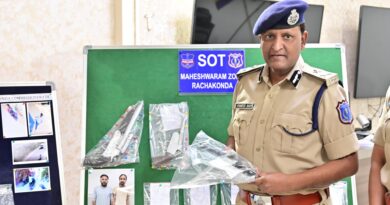Student Moves Supreme Court Challenging the Karnataka High Court Verdict Upholding The G.O Issued by Government That Bans Hijab in Colleges.
(Judicial Quest News Network)
Muslim Students from Karnataka Has moved the Supreme Court against the Karnataka High Court verdict in Hijab case.
The special leave petition has been filed by Muslim students named Niba Naaz through Advocate on Record Anas Tanveer.
The SLP Specifically points out that the Karnataka High Court does not confer any power to the Government to issue the GO dated 05-02-2022, in which it was observed that Hijab was not an essential practice.
The petitioners have stated that the High Court has erred in creating a dichotomy of freedom of religion and freedom of conscience and the court has inferred that those who follow a religion cannot have the right to conscience.
The Hon’ble High Court has failed to note that the Indian legal system explicitly recognises the wearing / carrying of religious symbols. It is pertinent to note that Section 129 of the Motor Vehicles Act, 1988, exempts turban wearing Sikhs from wearing a helmet. Order IX, Rule 8 of the Supreme Court Rules makes a special provision for affidavits that are to be sworn by pardanashin women. Furthermore, under the rules made by the Ministry of Civil Aviation, Sikhs are allowed to carry kirpans onto aircraft.
The SLP further states that the Petitioner submits that the Hon’ble High Court has failed to note that there does not exist any provision in law which prescribes any punishment for students for not wearing uniforms. Even if one were to presume that there existed a mandate to wear a particular uniform, there is no punishment prescribed in case a student does not wear the uniform.
The petitioners pointed out that The Hon’ble High Court has failed to note that the right to wear a Hijab comes under the ambit of ‘expression’ and is thus protected under Article 19(1)(a) of the Constitution. It is submitted that clothing and appearance fall within the ambit of the right of expression guaranteed under Article 19(1)(a) of the Constitution, as was held by this Hon’ble Court in the case of National Legal Services Authority v. Union of India, (2014) 5 SCC 438.
It is further submitted that The Hon’ble High Court has failed to highlight the actions of the Respondent which have shifted the burden of maintenance of public order from the State to the public on the basis that the wearing of Hijab by the Petitioner is the sole reason for the situation. This is akin to the claim that the Petitioner is responsible for the issue because they have chosen to practice their faith publicly.




